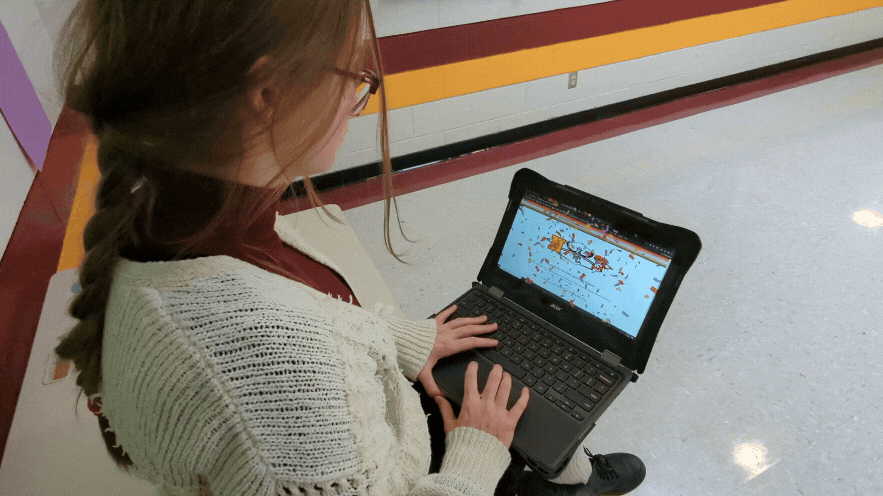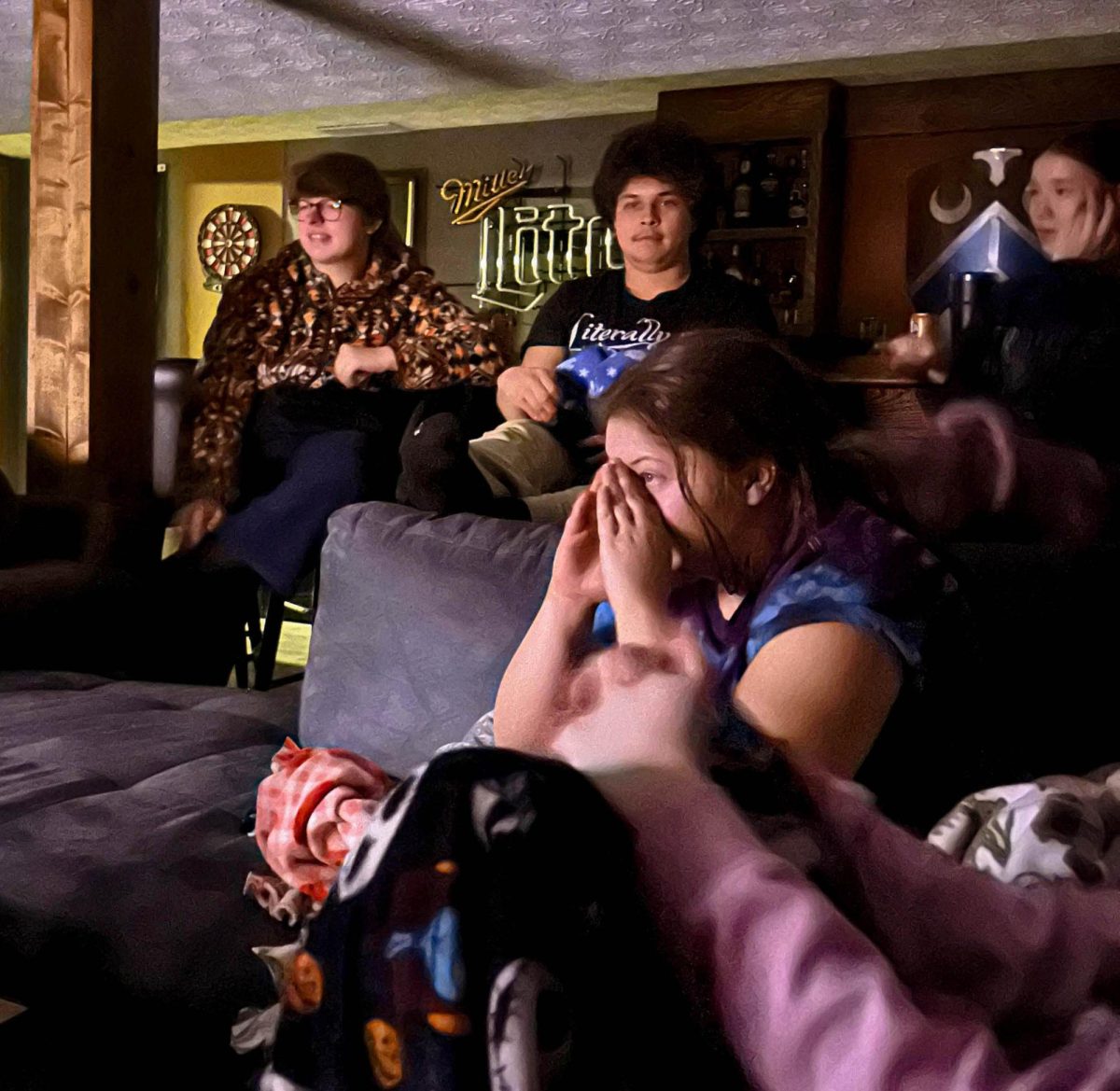Screen time disrupts teens’ sleep schedules
Today, more so than ever, it’s common to see teens and adults alike constantly buried in their phones. Electronics have established themselves as a major aspect of society. However, the increase of technology has led to many health concerns.
The teenage brain is in a state of great development, change and information processing, so maintaining brain health is crucial at a young age. Technology can oftentimes interfere with this development due to its addictive qualities.
Sarah Wiechman is a licensed professional counselor in the mental health field who encourages adequate sleep for teens.
Wiechman quoted Dr. Ijaz from Ohio Health as follows, “Social media interaction and validation, and especially task-oriented video games, stimulate the reward centers of the brain and keep us coming back for more. Unfortunately, this region also facilitates addiction, as most gamers or gambling addicts will tell you they can’t stop once they start,” Dr. Ijaz said
According to the National Sleep Foundation, electronics emit a blue light which suppresses the release of a hormone known as melatonin. Melatonin helps regulate the sleep-wake cycle. Ultimately, the suppression of melatonin contributes to problems falling and staying asleep.
The National Sleep Foundation has also found that teens of 13 to 17 get around 10 hours of sleep on a daily basis. However, many fall short, with most 13 to 14-year-olds getting eight hours, and most 15 to 17-year-olds only seven hours of sleep.
“Sleep is extremely important for everyone especially for teens whose brains are still developing. Excessive screen time can disrupt sleep,” Wiechman said.
Like most teens, junior Aubrey McMahon owns a cell phone and other electronic devices that she uses on a daily basis.
“On average I spend about three hours and 30 minutes on my phone,” McMahon said.
She also explained that she typically gets seven to eight hours of sleep a night, with difficulties with sleep coming following the use of technology at night.
“Teenagers who are using screen time at night are more at risk for sleep disturbances and symptoms of depression. Many teens who stay up late texting are not only getting less shut-eye, they’re also lacking the deep REM sleep essential for processing and storing information from that day into memory,” Wiechman explained.
McMahon said, “Before the iPhone came out with the night shift mode, I did find it hard to fall asleep when I would be on my phone right before I [went to] bed. But since I turned that on staring at 8 p.m., I noticed I can fall asleep easier.”
Like McMahon, sophomore Chase Nixon also acknowledged the impact screen time has had on his life.
“[I spend] too much [time on screens;] about four hours,” Nixon said.
Nixon also explained that he gets around seven hours of sleep a night, and is not limited in his use of screens throughout the day.
The National Sleep Foundation claims limiting electronic use during the day, especially right before bed, is an important factor in improving sleep quality.
“Limiting screen time, reading more and interacting with your community will curtail the damage that has been done by screens and electronic devices,” Wiechman agreed.
Excessive screen time and a lack of sleep also may lead to other issues in learning and cognitive development.
The National Institutes of Health conducted the Adolescent Brain Cognitive Development study. They discovered children who spent two or more hours daily on screens scored lower on thinking and language tests, than their peers who had not accumulated as much screen time.
“While you may be paying attention in your classes, you might not remember what happened in your classes yesterday,” Wiechman explained.
In an effort to educate people on the dangers associated with excessive screen time, different organizations have created resources to help device users.
“Nationwide Children’s Hospital posted some articles on their website as a resource for families a few years ago, [and] Ohio Health also has resources online,” Wiechman said.


























